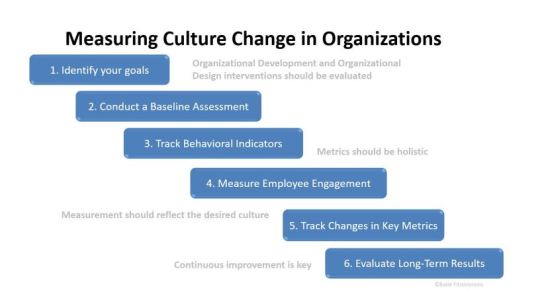#Organizational strategy
Explore tagged Tumblr posts
Text
Strategic Project Management
Many discussions about project management overlook the significance of the crucial early choices that shape the project execution approach. Decisions such as employing Agile or Waterfall methodologies, or choosing between prefabrication and on-site assembly, may not alter the expected project output, but they can greatly affect the delivery process and the project’s likely success. There’s no…

View On WordPress
#Agile#Execution strategy#On-site assembly#Organizational strategy#Performance criteria#PESTEL#planning#Policy creation#Portfolio management#Prefabrication#Program management#Project delivery#project management#stakeholder engagement#Success criteria#Waterfall
5 notes
·
View notes
Text

Sikkim Manipal University's HR specialization equips students with the skills needed to lead organizations through turbulent times, emphasizing crisis preparedness, conflict resolution, and effective communication. By developing these competencies, the program ensures future HR leaders can handle crises swiftly and maintain organizational stability.
#Crisis Management#Human Resources#Sikkim Manipal University#HR Specialization#Leadership Skills#Business Resilience#Organizational Strategy#HR in Crisis#Workforce Management#Professional Development
0 notes
Text
#strategic consulting#consulting services#strategic planning#market analysis#organizational strategy#business strategy#performance improvement#strategy development#top strategic consulting firms in uae#across the spiderverse
0 notes
Text
What are procurement and strategic procurement?
Procurement is a very crucial part of any business. If you have the best procurement strategy, it will help you improve your business efficiency and reduce any kind of business risk. Strategic procurement, also known as strategic sourcing, refers to a long-term strategy for ensuring the timely delivery of goods and services necessary to an organization's ability to accomplish its primary objectives. In this post, we are going to discuss this in brief.
Let's read it out:
What is procurement?
Procurement is a business management process that is used to manage and source external resources. It helps to identify the need for goods or services, assess and select vendors, negotiate prices, and create purchase orders. As such, procurement encompasses sourcing, which is the process of locating suppliers that can meet specified needs, and purchasing, which is the process of making a purchase.
To optimize procurement activity, businesses use tactical procurement or strategic procurement help. However, tactical procurement only focuses on short-term goals such as purchasing goods at the lowest possible price; on the other hand, strategic procurement focuses on a longer-term focus and prioritizes factors like a strong connection with the supplier.
What is strategic procurement?
Strategic procurement is a data-driven, enterprise-wide process that reduces supply risk while emphasizing an organization's long-term development. It employs a variety of approaches and technologies that extend far beyond unit price reduction.
With the increased strain on global supply chains, a drastic shift in corporate strategy has occurred, with procurement leveraging data and analytics to improve logistics coordination and operations. The main purpose is to meet high customer demand while raising awareness of environmental, social, and governance (ESG) goals that necessitate increased openness throughout the procurement process.
Procurement Strategy Framework
There is no limit to the size of any organization, but there are some common types of procurement strategies any business can adopt, including supplier management and optimization, cost reduction, risk management, total quality management, green purchasing, and global sourcing.
Mostly, the procurement strategy framework needs to have:
Strategy statement: the basis and the rational
Deliver the desired result.
Deadlines and timeframe
A tactical approach for implementing your strategy
Metrics used to assess your process
TCO, SWOT analysis, SCOPE analysis, category positioning matrix, and other techniques were employed.
Conclusion
Hope this presentation is useful for you. Rather, if you are looking for procurement and supply chain consulting companies in the UAE, you can connect with us. Here, we have a professional team to advise you on the best strategy to explore and improve the growth of your business.
#Top strategic consulting firms in UAE#Strategic consulting#Consulting services#Strategy development#Business strategy#Organizational strategy#Competitive analysis#Business transformation
0 notes
Text
genuinely though thank god for sportacus. lazytown is a good show and i’m so glad it exists but thank jesus for sportacus specifically. he’s like a personal trainer that follows me around and encourages me to eat an orange and gamify every boring moment in my life and you know what? i no longer suffer boring moments. thank the lord above for the bitch in blue
#what if i rode my bike. what if i ran to that stop sign. what if i danced to the music in my headphones#i have more energy than i thought possible and it all boils down to snacking on fruit and playing#also bonus points for feeling like a kid again. i’m so in touch with little me these days it’s actually wonderful#i have less anxiety too? and less overall shame??? HELLO?#don’t get me wrong i still suffer from the pains of adhd and anxiety but i have a lot more soothing strategies now thanks to the hyperfix#life is good. goddamn. it’s so fucking good to be alive#gear diary#lazytown#<- i feel weird putting my journal in the tag but it’s for organizational purposes. hi guys
57 notes
·
View notes
Text
ADHD mood (again)
I swear sometimes having ADHD is like living in a world where inanimate objects just teleport sometimes. Every day at random objects just teleport around your space.
The teleport happens completely at random. Usually paying really close attention to an object can delay it teleporting, watched pot never boils and all, but not always. Sometimes you're trying sooo hard to look at this thing so it doesn't teleport away, but then you blink or sneeze or look over at a noise you heard and oops it's gone.
It doesn't matter if you put an object in That Place You Will Remember It, because it will probably teleport somewhere else before you need it.
It doesn't matter if you have a special place for the thing, it's not going to stay there. No matter how many times you put it back, it's going to keep teleporting around.
It doesn't matter if you try reaaaally hard to remember where you put a thing. It's not there anymore, it teleported.
And after a while you stop bothering to try and remember where you put things, because it's faster to just look around at places things are likely to teleport to.
#adhd#The “just look places it might have teleported to” is my entire organizational strategy now#I just put things down wherever#Because I know putting them somewhere specific is pointless#I either won't remember or I won't put it there next time#So they go wherever I happen to find it convenient to set them#and then later when I need it I go#“If I was holding this object right now what is the most convenient surface for me to put it down and forget it on”#Surprise that's exactly where it is#So anyway that's how I found the Very Important paperwork I hadn't seen in 2 years#It was at the bottom of a stack of other papers on a desk I kept forgetting papers on
14 notes
·
View notes
Note
Top 5 MOST useful tools for blind people just starting out
Top 5 most fave tools for the blind overall
Top 5 least useful
Top 5 fucking weirdest and/or funniest
This is a big ask and I will do my best to answer, with the caveat that I am just a single blind person with memory issues who doesn't remember everything my blind friends have told me. XD I am counting other people as tools in this list because a person with eyes sometimes is a handy tool for us. XD
Top 5 MOST useful tools for blind people just starting out 1. White cane 2. Blindness skills training through centers, government programs like Vocational Rehabilitation, Orientation & Mobility specialists, and anywhere you can find it 3. Membership with the National Talking Book Library aka NLS in your state (US); I think the UK is RNIB and Canada has one, not sure about other countries 4. Supportive family and friends and other blind people if you can find them 5. Screen reader (NVDA is free for Windows, iPhone has VoiceOver, Android uses TalkBack)
Top 5 most fave tools for the blind overall 1. White cane and/or guide dog 2. Text to speech, screen readers, audio books, audio described movies and tv 3. Accessible smart phones (often iPhone but Android is catching up) 4. Bump dots (stick-on tactile dots you put around your home) 5. Braille and refreshable braille displays/notetakers
Top 5 least useful 1. Sighted people inventing crap without talking to any blind people ("smart" canes, "smart" shoes, dangerous devices you hold in your only free hand that claim to tell you what's in front of you but actually don't, screen reader breaking "accessibility" overlays, etc...) 2. That ring which only shows one braille cell at a time (that's not how anyone reads) 3. Strangers giving/yelling vague directions ("It's right over there!", "Oh my god watch out for the stairs (that you are halfway down)!", giving directions to the guide dog who doesn't speak English or any language because they are a dog...) 4. Hot liquid measuring devices (always broken, the noise they make is so fucking loud it's caused me a lot more injury than just sticking my finger in the hot liquid, will wake up the neighbors) 5. All but one use case of AI claiming to be for the blind, at least as far as I've seen
Top 5 fucking weirdest and/or funniest 1. Ping pong balls (good for measuring hot liquids) 2. Funnels (really helpful for pouring liquids) 3. The lanyard strap that sticks to the back of your phone so you can wear it around your neck (looks silly, is incredibly useful) 4. White cane holster (yes it's a thing, I have at least three XD) 5. Things being organized Very Specifically (close your eyes and YOU try to find the remote after someone put it in a random place! XD)
#just blind things#blindness#actually blind#blind#vision impairment#visually impaired#that last list was really hard cuz even the strange seeming tools#I don't think of as strange since they're just part of my every day#and I don't have a sighted person around to ask if something is funny/weird to them XD#the organizational thing cracks me up though#I have ADHD so bad y'all but I am almost superhumanly organized by necessity#when the meds are working I'm like a god of organizing strategies o_o#will help you get organized for money XD
24 notes
·
View notes
Text
195 notes
·
View notes
Text
Hey y'all! Do you think a six year old who likes to draw would like one of those fabric roll-up colored pencil/marker/crayon organizers?
#I never used one growing up#but I also had several siblings and art supplies were communal when we were little#once I got old enough to have my own art supplies#my organizational strategy is like...drawer#this is the Drawing Drawer#and I have a pouch in the drawer for holding specifically sketching pencils#and the rest is filled with a bunch of colored pencils and pens and markers in no order whatsoever#rescued from my older siblings' art supply destashes#my niece might appreciate being more organized though?
31 notes
·
View notes
Text
"It's better to endure the discomfort of the truth now than to suffer the discomfort of the lie later."

Simon Oliver Sinek is an English-born American author and inspirational speaker on business leadership. His books include Start with Why and The Infinite Game.
Author of Bestsellers: Simon Sinek is the author of several influential books on leadership and business, including the bestsellers "Start with Why," "Leaders Eat Last," and "The Infinite Game." His books focus on inspiring leaders and organizations to think differently.
Golden Circle Concept: Sinek is well-known for his "Golden Circle" concept, introduced in his book "Start with Why." The idea emphasizes the importance of understanding "Why" an organization exists, followed by "How" it operates, and "What" it does. This concept has become a foundational principle in leadership and marketing.
Inspirational Speaker: As an inspirational speaker, Sinek has delivered numerous talks and presentations on leadership, motivation, and organizational behavior. His TED Talk, "How Great Leaders Inspire Action," is one of the most-watched TED Talks of all time, with millions of views.
Background in Anthropology: Sinek's educational background includes a degree in cultural anthropology from Brandeis University. His understanding of human behavior and culture informs much of his work on leadership and organizational dynamics.
Business Consultant: In addition to his writing and speaking engagements, Sinek works as a business consultant, helping organizations develop leadership strategies and cultivate inspiring workplace cultures. He has worked with a variety of companies, including large corporations and non-profits, to implement his leadership principles.
#Leadership#Inspirational Speaker#Author#Start with Why#The Infinite Game#Golden Circle#Business Strategy#Motivational Speaker#TED Talk#Organizational Behavior#Leadership Development#Cultural Anthropology#Leadership Principles#Business Consulting#Management#Innovation#Workplace Culture#Strategic Thinking#Personal Growth#Visionary Leadership#quoteoftheday#today on tumblr
2 notes
·
View notes
Text

putting this here too. i don't recommend this strategy, but it's strangely consistent. you really can't get 6 spears quick as anyone besides spearmaster, but uh. it works i guess. literally all i did was stockpile spears, lure it over, and then spam grab and throw while shrieking and i somehow got it. this is my first red centi kill ever.
#did this to a second one in pipeyard too#but that one was messier; i let it get away because i wanted to save#just. the more spears the better i guess#just rain hell on it#sporepuffs are really a better strategy though#this is just pure spear spam and panic#downpour spoilers#spearmaster spoilers#(sort of)#this was during an expedition#but also i'm kinda just wandering around as spearmaster#i for some reason made the really dumb mistake of doing a pearl ferry quest to moon as him#but oh well#i guess i get to explore garbage wastes in spearmaster's time#(i'm not doing SC lol i just realized i won't have any hands left)#rain world#downpour#egh fine maintagging#for organizational purposes
12 notes
·
View notes
Text
I do need to sit down today and draft a new budget even though it scares me. I need to be realistic about it too. I really don't enjoy budgeting. Neither me nor wifey are especially gifted with it, and it makes us both anxious and avoidant, so it's really unfortunate.
Definitely one of the tasks for the personal assistant chart once I can afford one.
#for any one wondering:#i have an ongoing understanding with my wife that should our finances ever allow it there are two services i want to hire out#household maintenance care and the phone call/mail/email/bills bermuda triangle of disaster#between the two of we are so fucking bad at these things but they are so essential to basic functioning#that it genuinely harms us when we fuck up#so for now we keep chugging along#lots of radical acceptance and self compassion and executive functioning support strategies to try and keep the plates spinning#but some day theoretically we'll have the money to pay a freelancer to come in and spend 1-2 hours a couple of days per week#just.....helping us deal with some of this stuff#i'd pay them very well#i'm thinking something like $100/day for maybe 2 hours work?#i just want someone who will sort and respond to my mail for me and schedule my appts/log them in my calendar and shoot me a text about it#someone who washes all the dishes down to baseline once a week and helps me do organizational planning/reworking once a month#not big stuff by any means but life changing to me#especially if their role is largely body doubling with me while I do other cleaning/organizing tasks so double the work can get done#anyway its purely hypothetical now and for a long time to come but i keep track of what tasks we may need help with#so i can prioritize and understand how many hours of support we would really need each week
10 notes
·
View notes
Text
The Role of HR in Crisis Management: Lessons from the HR Specialization at Sikkim Manipal University
So, in an organizational context, when turmoil arises, a plan will only take one so far. Effective leadership and responsive teams are where the success or shortfall of any crisis will originate. In times of chaos, HR is indispensable in guiding the organization through the storm-be it internal communications or extending support to on-staff workers throughout the turbulence. The Sikkim Manipal…
#Business Resilience#Crisis Management#HR Specialization#Human Resources#Leadership Skills#Organizational Strategy#Professional Development#Sikkim Manipal University#Workforce Management
0 notes
Photo

(via Measuring Culture Change in Organizations)
#change management#organizational change#organizational culture#change strategy#organizational development#measuring change#change leadership#leadership#change#culture change
2 notes
·
View notes
Text
#coming out scene of all time actually!!
...Have only seen this show via Tumblr posts so I may be way off, but is he technically coming out, or is he just now being clued in that he misread the blueprints/storage plan and most people put the closet somewhere different than he thought with different stuff in it?






9-1-1 7.05 "You Don't Know Me"
#''what do you mean 'out of the closet'? my 'looking at hot guys' asses' is right there on the shelf next to 'looking at hot gals' asses.'''#''uh......... that's not an abnormal organizational strategy. just out of curiosity what did you think was behind that door there?''#''...the laundry room?''#911 show
773 notes
·
View notes
Text

Discover how strategic recruitment and employee training services can transform your workforce. Learn how tailored solutions drive productivity, innovation, and sustainable growth for your organization.
#TruFynd#recruitment solutions#employee training programs#workforce transformation#talent acquisition#upskilling employees#hiring strategies#organizational growth#training and development
0 notes